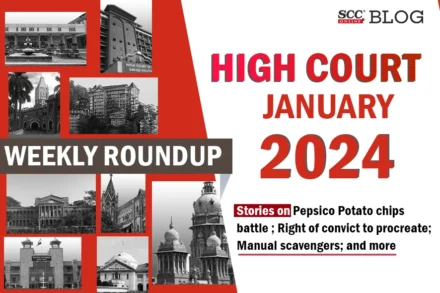
HIGH COURT JANUARY 2024 WEEKLY ROUNDUP| Stories on Pepsico Potato chips battle; Right of convict to procreate; Manual scavengers; and more
A quick legal roundup to cover important stories from all High Courts this week.

A quick legal roundup to cover important stories from all High Courts this week.
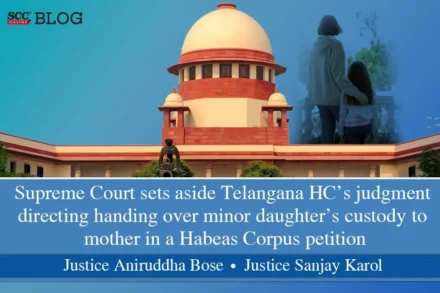
Supreme Cour refused to interfere with the High Court’s direction granting liberty to the father to file appropriate application in terms of Section 24 of the Guardians and Wards Act, seeking custody and visitation rights before the Family Court.
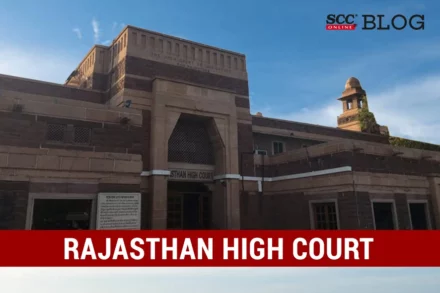
“The petitioner stated that is manifestly clear that the detainee’s life and well-being is in imminent danger and the respondents has failed to protect the detainee’s right under Article 21 of the Constitution, including her right to personal liberty.”

The Enforcement Directorate registered an ECIR under the provisions of Prevention of Money Laundering Act, 2002 for the alleged offense of money laundering under Section 3 of PMLA, punishable under Section 4 of PMLA, based on a scheduled offence allegedly committed under the provisions of Penal Code, 1860.
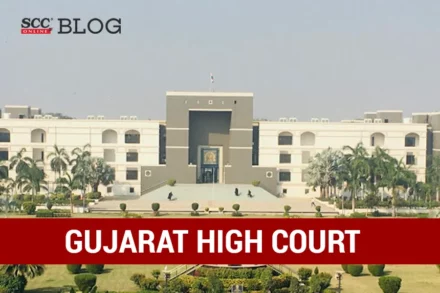
“Practicing black magic can be a personal choice, and the Court cannot delve into such issues in a habeas corpus petition”.
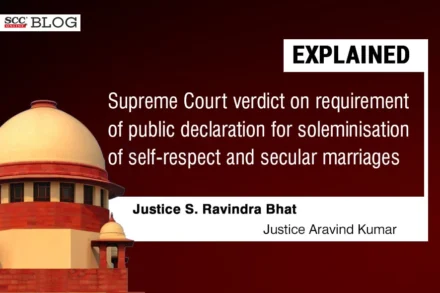
Supreme Court said that while acting as counsel or advocates or in their capacity as advocates, the advocates cannot undertake or volunteer to solemnize marriages. However, in their capacity as friends or relatives of the intending spouses, their role as witnesses cannot be ruled out.
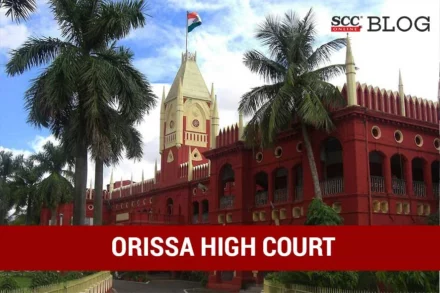
“Illegal confinement is a pre-condition to issue a writ of habeas corpus, it cannot be issued in respect of any and every missing person”.
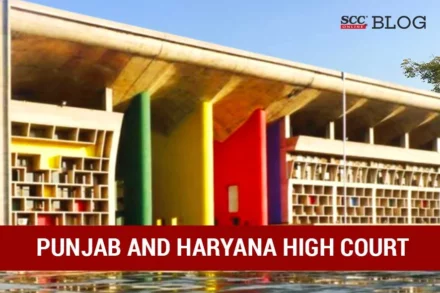
Punjab and Haryana High Court allowed the petitioner to meet her father-in-law once a week for 1 hour.
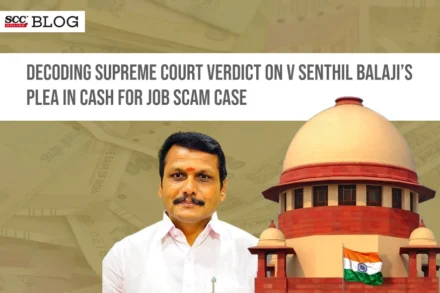
Supreme Court held that the words “such custody” occurring in Section 167(2) of the CrPC, 1973 would include not only police custody but also that of other investigating agencies.
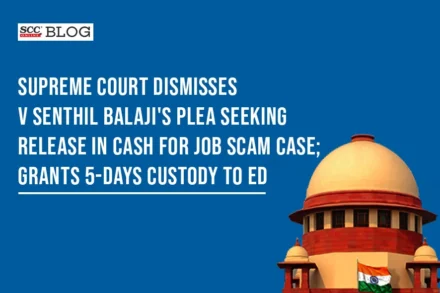
The present case is related to the cash-for-jobs scam, in which the Tamil Nadu Minister and DMK MLA V Senthil Balaji, among others, has been accused of accepting bribes from candidates in exchange of appointment to the State Transportation Corporation
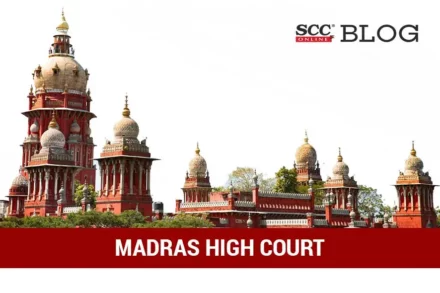
This report provides Justice Nisha Banu’s opinion in the Habeas Corpus plea.

This report provides Justice D. Bharatha Chakravarthy opinion in the Habeas Corpus plea.

The division bench of Madras High Court delivered a split verdict and referred the matter to the Chief Justice to place it before another judge.

The habeas Corpus petition was filed in relation to the cash-for-jobs scam case, in which the Tamil Nadu Minister and DMK MLA V Senthil Balaji, among others, has been accused of accepting bribes from candidates in exchange of appointment to the State Transportation Corporation

The Court said that it cannot be concluded that the petitioner’s daughter was abducted against her will and that she was being illegally confined.

S Megala, wife of V. Senthil Balaji, who has been arrested by the Directorate of Enforcement in a money laundering case, filed a habeas corpus petition, wherein the Madras High Court agreed to an urgent hearing, leading to the present SLP by ED before the Supreme Court.
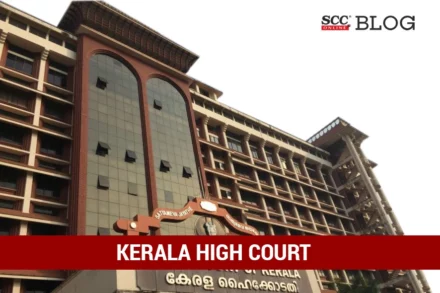
The alleged detenue told the Court that though she was in love with the petitioner and willing to marry him, she did not want to go with him but would prefer to go with her mother.

The action came following the Supreme Court’s decision, wherein the Court allowed the appeals arising out of the order for de novo investigation and set aside the directions issued in the original petition for de novo investigation. Further, the Court allowed the ED to continue its investigation.

Following the arrest, Senthil Balaji complained of chest pain and was taken to Government hospital for a medical checkup.
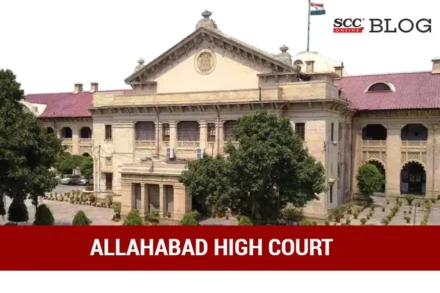
The primary object of a Habeas Corpus petition, as applied to minor children, is to determine in whose custody the best interests of the child will probably be advanced.